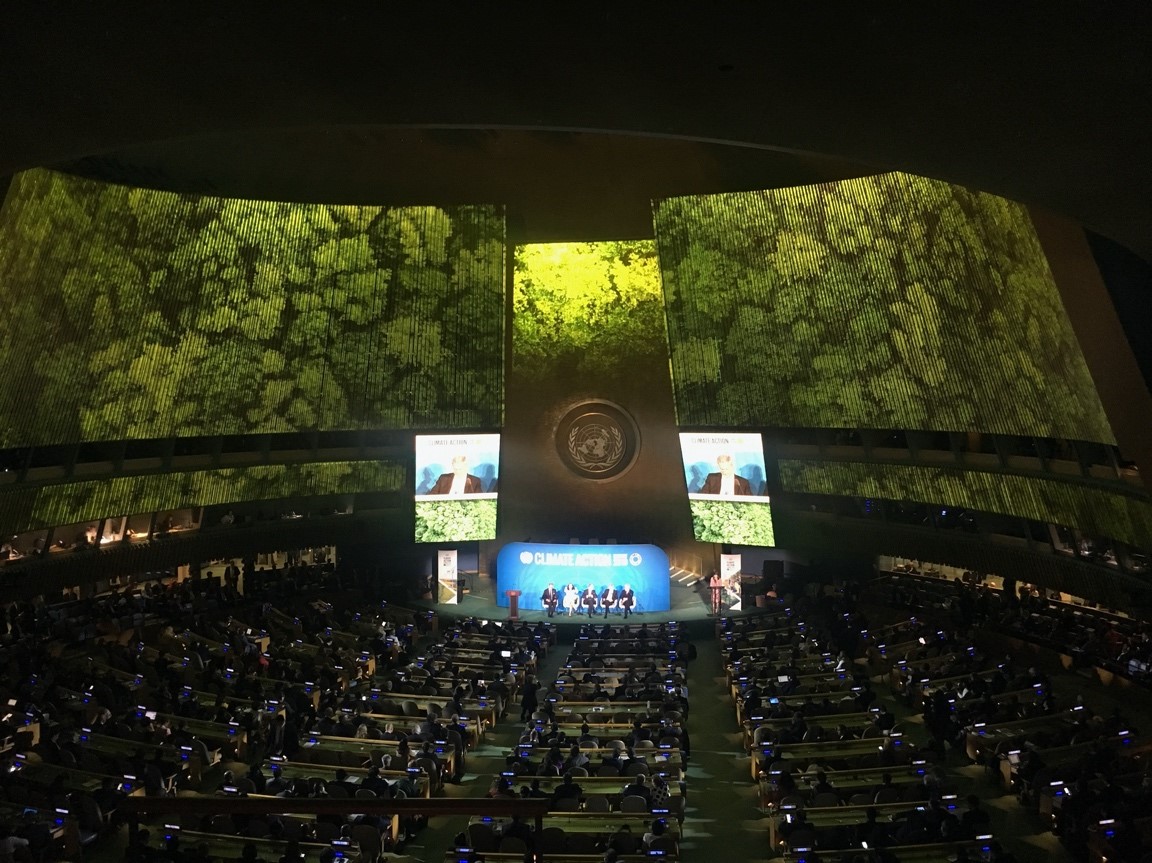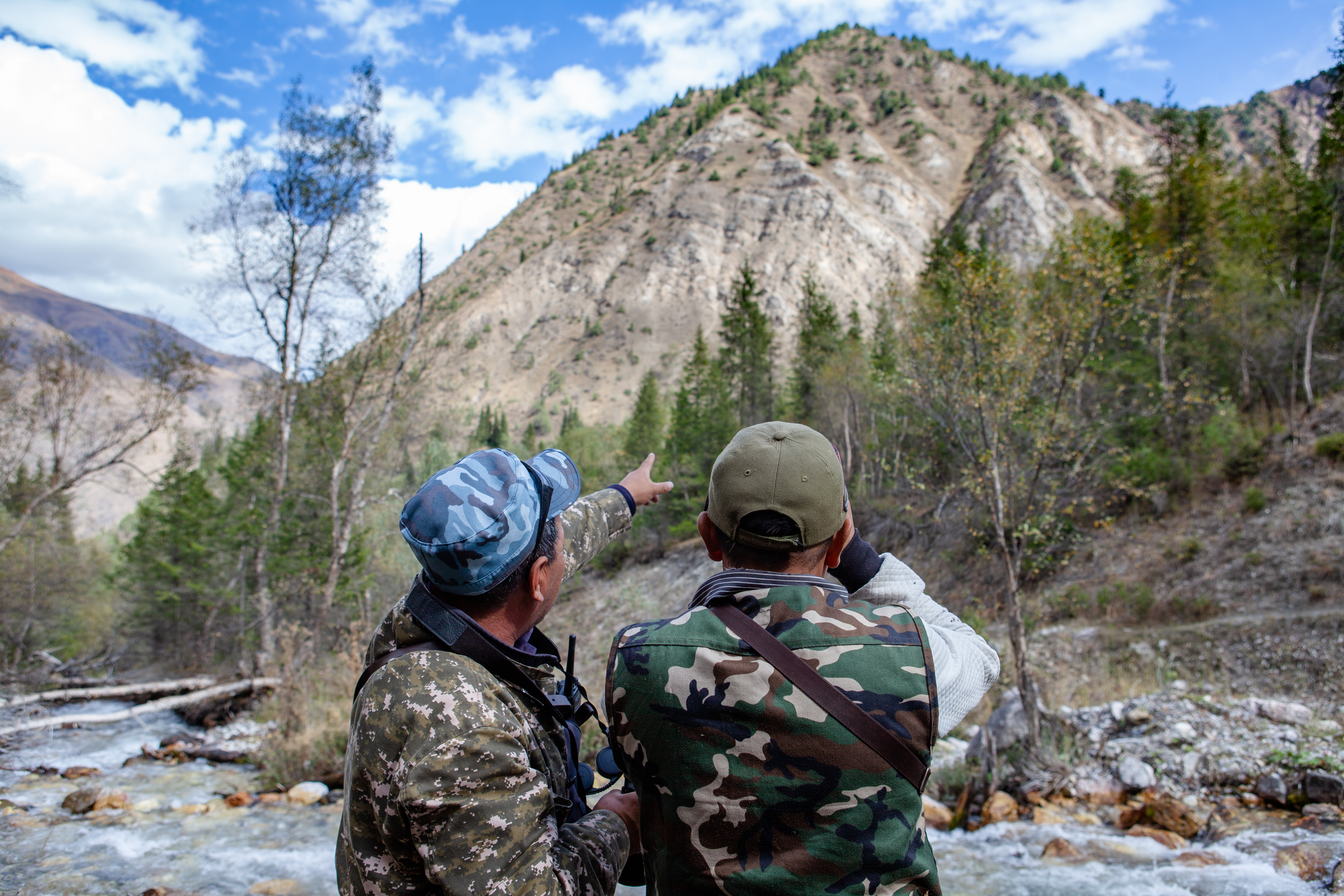United Nations General Assembly goes green during summit on climate change. Photo: news.un.org
This blog is prepared by Andreas Obrecht, Senior international consultant on drafting the UN Resolution on Biodiversity Conservation driven by the Kyrgyz Republic.
Kyrgyzstan is home to some of the world’s most unique animals such as the rare Snow Leopard and the Argali Sheep with its majestic horns. Occasionally a herd of Saiga Antilopes forages in the Kyrgyz steppes. Throughout history, people have embraced such iconic animals as emblems of nations and cultures. For millennia, they have inspired our customs, religions and beliefs and animated our legends, sagas and or fantasies. For many species, both wild and domesticated, their story is our story as we have coevolved together through time, both leading and following each other across vast terrains traversing continents and though climactic changes spanning epochs.
And they are linked to our understanding of nature and our world beyond their spiritual and symbolic value, we benefit from animals in numerous ways. As domesticated animals, we use them for husbandry and labor. As wild animals, they can draw ecotourism as a promoter of sustainable development for economically disadvantage peoples and places. Iconic animals help us by capturing our attention, we can use them further to direct greater focus towards the importance of understanding, maintaining, and conserving the natural environment.
Rangers of Alatai National Park contribute in biodiversity conversation with the support of the UNDP/GEF project. Photo: Sam Barataliev / UNDP Kyrgyzstan
Essential to this understanding of the natural environment is acknowledgement that many animals require large spaces to survive, to migrate between feeding and breeding grounds often with the flow of seasons. Yet the proliferation of border fences, infrastructure projects, intensification of agriculture, poaching and other human encroachment on natural habitats increasingly limits the movements of wild animals and heightens challenges of human-wildlife conflicts. Iconic animals have the benefit of visibility, but where their survival is threatened, they are also harbingering for the loss a multitude of species far less known and scarcely seen.
The reduction or loss of a single iconic species can be symptomatic of a broader ecosystem in jeopardy with potentially catastrophic ramifications for a far greater number of species including humans. Threatened and overburdened ecosystems can lose their capacity to provide essential functions and services such as clean water sources, protection against natural hazards and safe harbors for pollinating insects. If the vicious cycle of biodiversity loss continues unabated, ecosystems will become less able to adapt to a changing climate. This is not only potentially detrimental to wildlife, but also increases the likelihood of conflict among humans.
These challenges invite opportunities for cooperation and collaboration across borders. As is the case with the Snow Leopard, the habitats of many iconic animals can extend across national borders and reach into multiple countries. Just was we need to protect spaces for animals to roam and migrate, we also need to create spaces for international dialogue and cooperation.
Andreas Obrecht: "The Kyrgyz Republic – together with other states – has demonstrated leadership and expertise in international cooperation on biodiversity among range states of the Snow Leopard". Photo: personal archive
The world is currently preparing for the major global UN Biodiversity Conference, scheduled for this autumn in Kunming, China. This is an optimal time to push the momentum for direct impact through regional and multilateral cooperation. The Kyrgyz Republic – together with other states – has demonstrated leadership and expertise in international cooperation on biodiversity among range states of the Snow Leopard.
This year, the United Nations General Assembly will dedicate a Heads of State level special opening session to nature. Sooronbay Jeenbekov, the president of the Kyrgyz Republic, has announced his participation in the summit. With the support of UNDP Kyrgyz Republic, Kyrgyzstan will propose to the United Nations General Assembly a resolution on transboundary cooperation for biodiversity entitled “Nature knows no borders”. The resolution will further the broader objectives of transboundary cooperation on biodiversity, and its implementation will mark a major step towards the global Sustainable Development Goals.

 Locations
Locations






